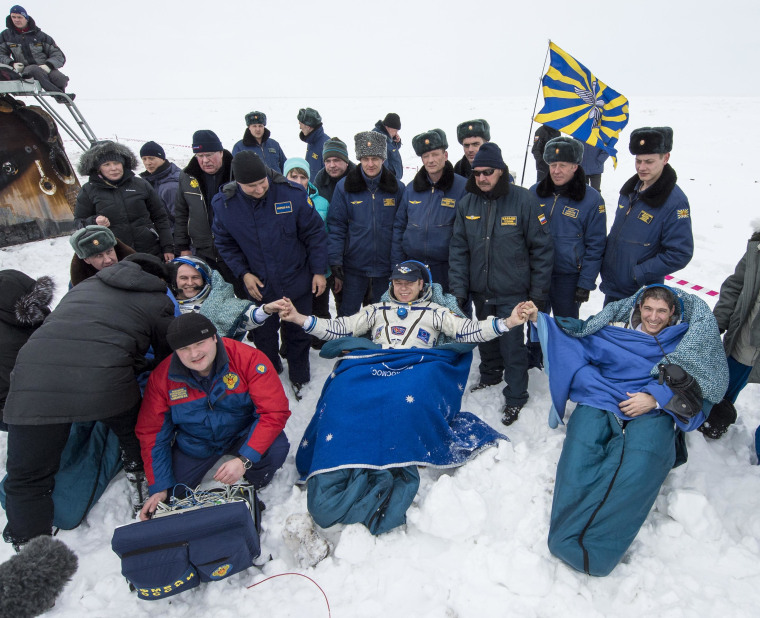A pair of Russian cosmonauts and a U.S. astronaut left the International Space Station in a Russian Soyuz capsule on Monday and returned to Earth, ending a six-month mission.
With former station commander Oleg Kotov at the controls, the Soyuz touched down at 11:24 p.m. ET Monday (9:24 a.m. Tuesday local time) southeast of Dzhezkazgan in Kazakhstan.
Strapped inside the Soyuz with Kotov were fellow Russian cosmonaut Sergey Ryazanskiy and NASA astronaut Mike Hopkins. The trio launched together into space last Sept. 25.

"It was a really good increment," Kotov said during a change-of-command ceremony broadcast on NASA TV Sunday.
In addition to working on dozens of science experiments, Kotov and Ryazanskiy carried the Olympic torch for the 2014 Winter Olympic Games outside the station during a spacewalk on Nov. 9. The torch was transported back to Earth by an earlier crew in time for the Sochi ceremonies.
With Kotov and his crewmates gone, the space station contingent has been reduced from six to three spacefliers, including Koichi Wakata, the first Japanese astronaut to command the station. Three fresh crew members are due to arrive later this month.
Severe winter weather in Kazakhstan had threatened to delay the Soyuz's landing. A Russian space industry source told Reuters that fog and low visibility initially kept airborne recovery teams from getting to Dzhezkazgan, a town about 90 miles (140 kilometers) from the remote landing site on the windswept Kazakh steppes. But Russian officials decided to go ahead with the landing after reviewing weather forecasts and the status of the recovery crews.